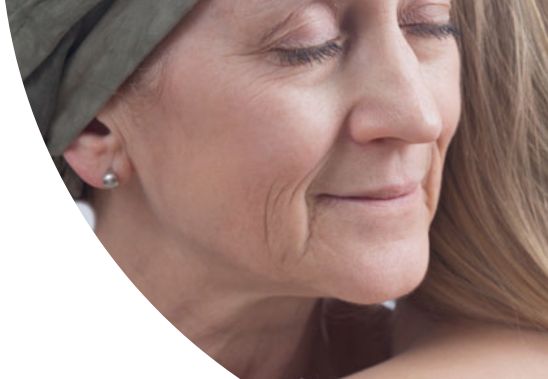16th September 2025
Navigating the emotional challenges of breast cancer diagnosis – Expert Corner with Dr. Lorraine Walsh
A breast cancer diagnosis is a personal journey, and no two experiences are the same. Each woman is treated as an individual, and what feels right for one person may not be the best approach for another. Some women find comfort in sharing their story on social media or connecting with others through support groups. Others channel their energy into physical activity, such as running marathons. Some focus on making dietary changes to feel healthier and more in control.
While it is natural to want to take action, it is important to remember that there is no need to follow extreme diets or consume large amounts of supplements. You do not need to cut out fat or sugar completely. The best approach is to maintain a balanced, healthy diet. If you drink alcohol, do so within recommended limits, and, if you smoke, we strongly recommend stopping, as smoking can worsen the side effects of radiotherapy.
Many women feel a sense of guilt after their diagnosis, believing they must have done something wrong. This feeling can lead to an intense drive to make drastic life changes in an effort to "fix" what has happened. That is why, at your initial consultation, you will be asked how you have been coping since your diagnosis. This simple question often brings up a mix of emotions, including sadness, anger, guilt, and uncertainty. While surgery may happen quickly, the psychological impact of the diagnosis can take longer to process.
.jpg?sfvrsn=12782390_0)
Emotional challenges following breast cancer diagnosis
There is no right way to feel following a breast cancer diagnosis. Emotions can change not just day by day, but hour by hour. Many people find it difficult to return to their usual routines in the early days following their diagnosis.
If you are feeling overwhelmed, you are not alone. It can help to talk to someone, whether it is a family member, a close friend, or someone who has been through a similar experience. Sometimes, opening up to someone outside your immediate circle, like your GP or a support service, can be easier.
The process of diagnosis and treatment can bring on a range of difficult emotions, including stress, anxiety, fear, or uncertainty. You might find yourself worrying about treatment outcomes, test results, side effects, or how this will impact your loved ones. While these feelings are normal, there are small steps you can take to help manage them:
- Do what brings you joy. Keeping your mind engaged with hobbies or activities you love can be a helpful distraction and bring a sense of normality back into your day.
- Practice mindfulness and relaxation. Setting aside time to breathe, reflect, or simply rest can help ease mental and emotional tension.
- Stay active. Gentle physical activity, like going for a walk, stretching, or practicing yoga, can help clear your mind and reduce stress levels.
- Talk about it. Speaking with a counsellor or therapist can offer a safe space to explore and better understand your emotions, with the support of a trained professional.
At the Mid-Western Radiation Oncology Centre in Limerick, we recognise the importance of emotional support alongside medical treatment. You will have access to resources to help manage stress, and right next door is the Cancer Support Centre, offering a wide range of services that can support you throughout your journey.
The most important advice is to use the services available to you, take care of yourself, and continue living life in the way that feels right for you. Some women choose to return to work, while others take time to adjust, this decision is entirely personal. No matter what path you take, support is available to help you every step of the way.
The above content was reviewed by Dr. Lorraine Walsh, Consultant Radiation Oncologist at Mater Private Network’s Mid-Western Radiation Oncology Centre in Limerick.










.jpg?sfvrsn=ee0f5b66_1)

